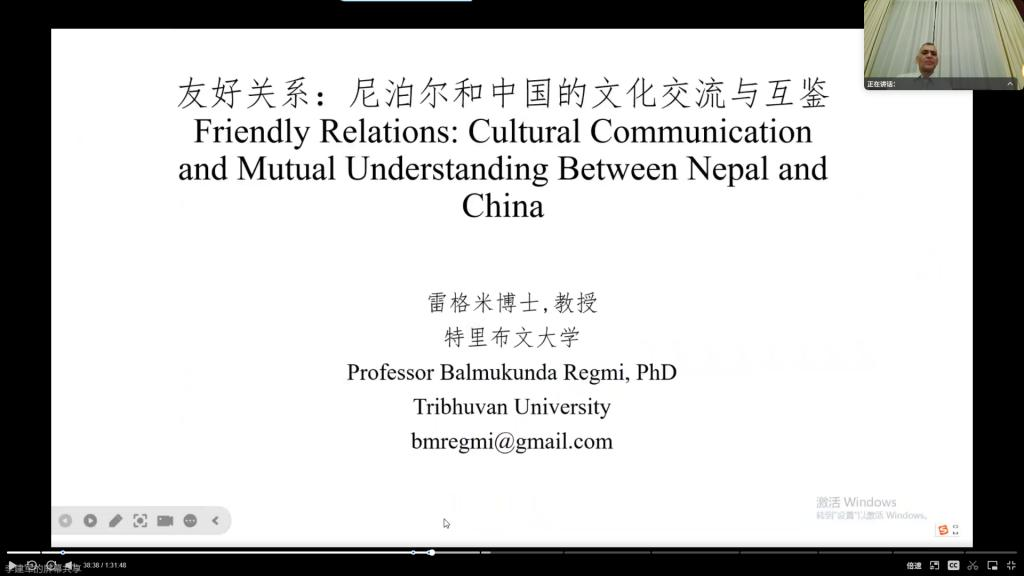Bal Mukunda Regmi, Professor from Tribhuvan University, Nepal, and President of the Nepal-China Social Relations Research Institute, at the invitation of Taizhou University, delivered an online lecture titled “Friendly Relations: Cultural Communication and Mutual Understanding between Nepal and China” on November 1. The lecture was chaired by Li Jianjun, University Party Committee Member and Vice President.

Professor Regmi delivering his lecture
Professor Regmi systematically outlined the millennia-long history of cultural exchange between Nepal and China, covering historical ties, ethnic migrations, linguistic evolution, religious dissemination, and daily life. He noted that the Kirati people, one of Nepal’s oldest ethnic groups, are believed to have migrated from China, and their calendar system aligns closely with ancient Chinese civilizations, dating back roughly 5,000 years. Material exchanges included Tang Dynasty introductions of spinach from Nepal, while Chinese tea, cabbage, firecrackers, lychees, and related customs influenced Nepalese language and culture.

Professor Bal Mukunda Regmi
Professor Regmi highlighted that Buddhism originated in Lumbini, Nepal, and upon entering China, integrated with Daoist and Confucian thought, forming unique Chinese Buddhist traditions. He cited the Jokhang Temple in Lhasa and Beijing’s Miaoying Temple White Stupa as examples of Nepalese artisan contribution, symbolizing artistic fusion and shared faith. During Q&A, he addressed questions on how Nepalese youth perceive China and youth exchanges, noting increased understanding through social media, Chinese products, tourism, and education cooperation, alongside growing enthusiasm for learning Chinese.
Professor Regmi’s accessible and engaging presentation enhanced understanding of Nepalese culture and laid groundwork for future academic cooperation and youth interaction. The university will continue promoting in-depth China-Nepal dialogue in education and culture, fostering mutual learning and people-to-people ties.